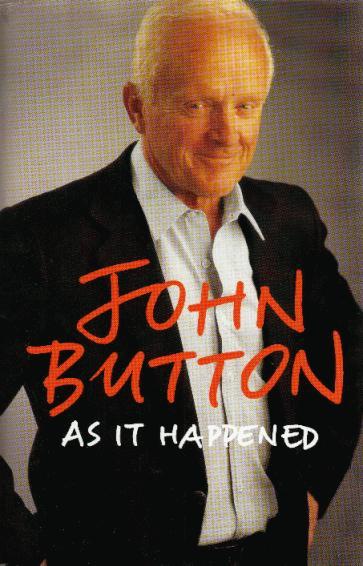 Hugely influential former Australian Labor trade minister John Button died today of pancreatic cancer. He was 74. Button was a Senator for Victoria who served in the Federal Parliament between 1974 and 1993 and was Minister for Industry, Commerce and Technology for 10 years from 1983. He was the Government leader in the senate, and a driving force behind Labor's massive changes to the finance and industry sector. His was also the longest tenure in a single ministry in the Hawke-Keating governments. Button was famous for his straight talking style and he occasionally earned the backhanded compliment of being “too honest” to be an effective politician.
Hugely influential former Australian Labor trade minister John Button died today of pancreatic cancer. He was 74. Button was a Senator for Victoria who served in the Federal Parliament between 1974 and 1993 and was Minister for Industry, Commerce and Technology for 10 years from 1983. He was the Government leader in the senate, and a driving force behind Labor's massive changes to the finance and industry sector. His was also the longest tenure in a single ministry in the Hawke-Keating governments. Button was famous for his straight talking style and he occasionally earned the backhanded compliment of being “too honest” to be an effective politician. It was Button, more than any other minister in that decade of Labor Government, who took up the challenge of market reform and deregulation. He removed the protection-induced inefficiencies of Australia's large-scale industries by knocking down its tariff walls. His industry plans for steel, heavy engineering, textiles, clothing and footwear, shipbuilding and motor vehicles had initially mixed but generally very positive results. "The Button touch" was a significant contributing factor to an extraordinary 17 per cent growth a year since 1986-87 in manufactured exports.
John Norman Button was born in Ballarat on 30 June 1933 and educated at Geelong College and the University of Melbourne, where he graduated in arts and law. He first ventured into politics to campaign against the Menzies government's 1951 referendum to ban the Communist Party. Button then joined that Party, not out of communist zeal but merely to get a free trip to a Moscow youth festival. In 1959, he joined leading Labor lawyers Maurice Blackburn & Co in Melbourne. He rose to become a senior partner until he was elected to the Senate in 1974.
Button was a close personal friend of party leader Bill Hayden in the early 1980s and it was he who had the unenviable task of advising Hayden it was time to stand aside and make way for Bob Hawke before the 1983 election. When Hawke won that election he gave the newly appointed Senate leader his choice of ministerial portfolios. Button chose industry because, he said, having seen some very bad factories, he thought it would be a challenge.
Button relished the challenge. He went to Sweden in 1984 where he saw a similar political environment to Australia but there the government had a better relation with industry. Sweden had no regime of tariffs but did help with research, development and industry restructuring. Button was also impressed by their future planning and took these ideas back to Australia. His Button Car Plan saw a phased withdrawal of protective tariffs combined with government export incentives, while the industry reduced the number of plants and models to gain economies of scale.
 Button retired in 1993 and has remained active in Labor affairs while publishing his memoirs. He also joined trade missions, company boards and became a professorial fellow at Monash University. Button also found time to support his beloved Geelong (Australian Rules) Football Club. Button would have greatly enjoyed the double satisfaction last year of Labor regaining Government as Geelong won its first premiership in 44 years. But in between these two events he found out he had pancreatic cancer and suffered five painful months before dying earlier today.
Button retired in 1993 and has remained active in Labor affairs while publishing his memoirs. He also joined trade missions, company boards and became a professorial fellow at Monash University. Button also found time to support his beloved Geelong (Australian Rules) Football Club. Button would have greatly enjoyed the double satisfaction last year of Labor regaining Government as Geelong won its first premiership in 44 years. But in between these two events he found out he had pancreatic cancer and suffered five painful months before dying earlier today. Several Labor heavyweights have since paid tribute to Button. Acting Prime Minister Julia Gillard said she had known Button through the Victorian branch of the party and had always admired him. She called him a legend of the Labor movement. Former Prime Minister Paul Keating said his death was a loss to the country and the Labor party alike. Keating admired his independent spirit and said he “played corner politics with cunning and élan”. Another former PM, Bob Hawke said it was Button’s reforms that laid the basis for Australia's current and ongoing prosperity. Hawke was one of the last of his friends to see Button before he died. “My final memories are of this man of small stature, strong character and great courage in the face of adversity,” he said.
No comments:
Post a Comment